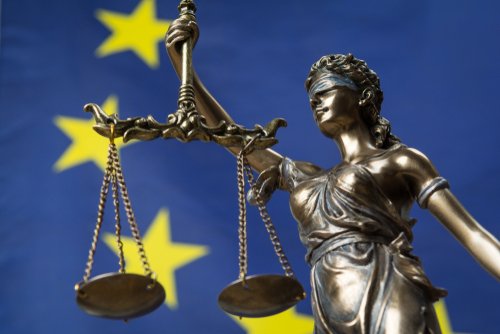Belgium (Brussels Morning Newspaper) The recent spate of fraud and corruption scandals in the EU’s institutions signals the end of an era. Disillusionment and disenchantment with the rapacious Anglo-Saxon model of dog eat dog capitalism may yet lead to a tectonic ideological shift from laissez faire and self-regulation to state intervention and regulation.
This would be the reversal of a trend dating back to Thatcher in Britain and Reagan in the USA. It would also cast some fundamental – and way more ancient – tenets of free-marketry in grave doubt.
Markets are perceived as self-organizing, self-assembling, exchanges of information, goods, and services. Adam Smith’s “invisible hand” is the sum of all the mechanisms whose interaction gives rise to the optimal allocation of economic resources. The market’s great advantages over central planning are precisely its randomness and its lack of self-awareness.
Market participants go about their egoistic business, trying to maximize their utility, oblivious of the interests and action of all, bar those they interact with directly. Somehow, out of the chaos and clamor, a structure emerges of order and efficiency unmatched. Man is incapable of intentionally producing better outcomes. Thus, any intervention and interference are deemed to be detrimental to the proper functioning of the economy, it disrupts the “price signal”.
It is a minor step from this idealized worldview back to the Physiocrats, who preceded Adam Smith, and who propounded the doctrine of “laissez faire, laissez passer” – the hands-off battle cry.
Theirs was a natural religion. The market, as an agglomeration of individuals, they thundered, was surely entitled to enjoy the rights and freedoms accorded to each and every person. John Stuart Mill weighed against the state’s involvement in the economy in his influential and exquisitely-timed “Principles of Political Economy”, published in 1848.
Undaunted by mounting evidence of market failures – for instance to provide affordable and plentiful public goods – this flawed theory returned with a vengeance in the last two decades of the past century. Privatization, deregulation, and self-regulation became faddish buzzwords and part of a global consensus propagated by both commercial banks and multilateral lenders.
As applied to the professions – to accountants, stock brokers, lawyers, bankers, insurers, and so on – self-regulation was premised on the belief in long-term self-preservation. Rational economic players and moral agents are supposed to maximize their utility in the long-run by observing the rules and regulations of a level playing field.
This noble propensity seemed, alas, to have been tampered by avarice and narcissism and by the immature inability to postpone gratification. Self-regulation failed so spectacularly to conquer human nature that its demise gave rise to the most intrusive statal stratagems ever devised. In both the UK and the USA, hitherto bastions of hands-off, the government is much more heavily and pervasively involved in the minutia of accountancy, stock dealing, and banking than it was only two decades ago.
But the ethos and myth of “order out of chaos” – with its proponents in the exact sciences as well – ran deeper than that. The very culture of commerce was thoroughly permeated and transformed. It is not surprising that the Internet – a chaotic network with an anarchic modus operandi – flourished at these times.
The dotcom revolution was less about technology than about new ways of doing business – mixing umpteen irreconcilable ingredients, stirring well, and hoping for the best. No one, for instance, offered a linear revenue model of how to translate “eyeballs” – i.e., the number of visitors to a Web site – to money (“monetizing”). It was dogmatically held to be true that, miraculously, traffic – a chaotic phenomenon – will translate to profit – hitherto the outcome of painstaking labour.
Privatization itself was such a leap of faith. State owned assets – including utilities and suppliers of public goods such as health and education – were transferred wholesale to the hands of profit maximizers. The implicit belief was that the price mechanism will provide the missing planning and regulation. In other words, higher prices were supposed to guarantee an uninterrupted service. Predictably, failure ensued – from electricity utilities in California to railway operators in Britain and utilities in every other country.
The simultaneous crumbling of these urban legends – the liberating power of the Net, the self-regulating markets, the unbridled merits of privatization – inevitably gave rise to a backlash.
The state has acquired monstrous proportions in the decades since the Second world War. It is about to grow further and to digest the few sectors hitherto left untouched. To say the least, this not not good news. But we libertarians – proponents of both individual freedom and individual responsibility – have brought it on ourselves by thwarting the work of that invisible regulator – the market.
Opinions expressed in the op-ed section are solely those of the individual author and do not represent the official stance of our newspaper. We believe in providing a platform for a wide range of voices and perspectives, even those that may challenge or differ from our own. As always, we remain committed to providing our readers with high-quality, fair, and balanced journalism. Thank you for your continued support.Sincerely, The Brussels Morning Team




